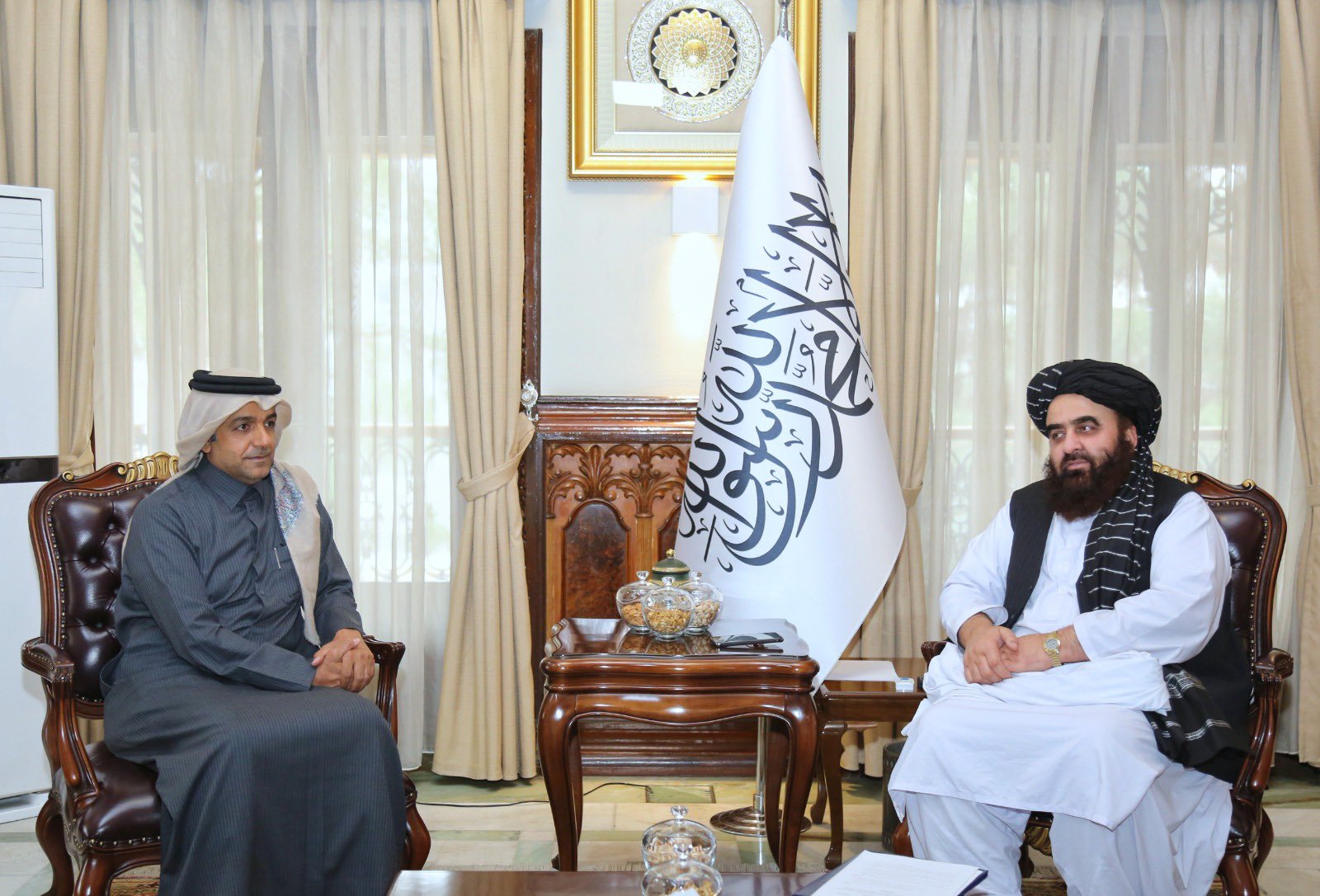In January, the acting Afghan government suspended university education for Afghan women and girls.
Qatar’s special envoy for conflict resolution met with the Taliban-led Afghan administration in Kabul on Sunday, the Gulf state’s foreign ministry said, amid growing concern over a drawback of human rights in Afghanistan.
According to the statement, Special Envoy of the Minister of Foreign Affairs for Counterterrorism and Mediation in Conflict Resolution Dr. Mutlaq Al Qahtani travelled to Kabul where he met with several officials including Afghan Foreign Minister Amir Khan Muttaqi, Minister of Interior Sirajuddin Haqqani, and Minister of Education Habibullah Agha.
Al Qahtani also met with the Director-General of the General Directorate of Intelligence Abdul Haq Wasiq.
“During the meetings, they discussed the most important developments in Afghanistan, especially in politics, economy, development, and education,” the statement read.
The Qatari foreign ministry said Al Qahtani reiterated Doha’s “position supporting all segments of the Afghan people to obtain all their rights, particularly the right to education, especially for girls, and respect for women’s right to work”.
Al Qahtani further stressed “the continuation of Qatar’s endeavours to support and facilitate efforts to reach a comprehensive political consensus that achieves security and stability in Afghanistan.”
The latest meeting comes amid a rise of concerns for human rights in Afghanistan following the Taliban’s ban on education and employment for women and girls.
Qatar was among few countries around the world that addressed the developments and has continuously denounced the Taliban’s actions as “deeply concern”. However, it has also emphasised its commitment to holding dialogue with the Taliban to better the situation on the ground.
The Gulf state has hosted the Taliban’s political office since 2012, serving as a key mediator between the group and the former Afghan administration as well as the rest of the global community.
Last month, Qatar vowed to stand with Afghan women as they continued to face irrational restrictions by the Taliban-led administration.
In January, the acting Afghan government suspended university education for Afghan women and girls.
Days later, the caretaker government banned Afghan women from working in local and foreign non-governmental organisations.
Speaking to CNBC, Qatar’s Foreign Minister Sheikh Mohammed bin Abdulrahman Al Thani said the Gulf state has been reaching out to the interim government to understand the rationale behind the restrictive policies towards women and girls.
The top diplomat said Doha cannot see such policies rationalised from either a religious or cultural perspective, and confirmed his country is currently involved in consultations with other Muslim nations to “deal” with the situation.
“It’s just more and more provoking and making the situation much worse for them and for the Afghan people, we’ve been trying to reach out recently after these decisions take place. We’ve been trying also through other means jointly with other Muslim countries to talk to them and to go together,” Sheikh Mohammed said.
However, the Qatari official vowed Doha will stand with and support the women in Afghanistan.
“We will not exert any effort in order to make sure that we are helpful for them and to make sure that these kinds of decisions are not happening,” Sheikh Mohammed said.
Shortly after taking over Kabul, the Taliban promised a more open system of governance to contrast with its previous rule – which lasted between the late 1990’s and 2001 and saw devastating regression across the country.
Since the most recent takeover in 2021, Qatar has repeatedly called on the caretaker Afghan government to use the examples of Muslim countries where women play various roles in different sectors.
To date, no country has recognised the Taliban government.







